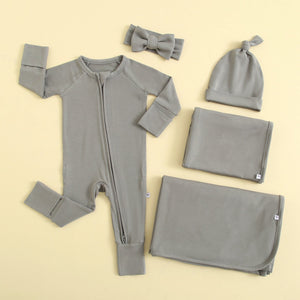
Budgeting for NICU Life: How to plan for meals, travel, and unexpected costs
Share
CWhen your baby is in the NICU, numbers can pile up fast. The cost varies by the level of care and the hospital, but a reasonable national range is about $3,000 to $5,000 per day. Higher-acuity Level IV days average around $3,700 in facility spending, based on recent commercial-claims data at the Health Care Cost Institute. Older clinical sources also place typical daily costs above $3,500, reinforcing that ballpark. Your own out-of-pocket amount will depend on insurance, deductibles, and length of stay.
Understanding the NICU bill (in plain language)
A NICU “bill” can include hospital charges, physician fees, imaging, labs, respiratory therapy, and more. One national analysis of employer-sponsored plans found average spending per NICU admission was about $71,000, but the range is wide because care needs vary a lot. Meanwhile, a Michigan Medicine–led study looked at what families actually paid and found average out-of-pocket NICU costs around $4,969, with about 1 in 11 families paying over $10,000. Knowing both the “total” and your likely share helps you plan more calmly.
Everyday meal costs add up
It’s easy to skip meals when you’re racing between the bedside and phone calls, but food spending can quietly snowball. Plan for small, steady costs: coffee on the way in, cafeteria lunches, and late-night takeout. Studies at the National Library of Medicine show families often face daily meal expenses alongside lost wages and travel. A little structure can keep you nourished without surprising your budget.
- Ask the NICU social worker about meal vouchers or hospital discount programs.
- Bring snack kits (protein bars, fruit, nuts) to reduce vending runs.
- Batch-prep dinners or accept a friend’s meal train to limit takeout.
- Use a simple envelope or app to track daily food spending.
Travel & parking on repeat
Frequent trips can rival the medical bill stress. Often, families drive long distances to reach a NICU, with meaningful daily commuting costs. Even when parking is reduced or free, fuel, tolls, and wear on your car add up, and rural families may need lodging near the hospital. Planning these repeating costs helps you avoid end-of-month surprises.
- Ask about parking passes or validation; some NICUs fully cover parking.
- Check Ronald McDonald House or hospital housing for low-cost lodging.
- Coordinate visits to carpool with a partner or relative when possible.
-
Track mileage for possible tax or charity deductions (ask your advisor).
The costs you don’t see coming
Even with good insurance, non-medical expenses are real: lost wages, childcare for siblings, laundry, and phone data for all those updates. A daily non-medical cost (unpaid parental leave, lodging, meals) can rival a small household budget when visits stretch on. Build a cushion for “miscellaneous” so one rough week doesn’t knock your plan off course.
How to create a simple NICU budget
- Start with what you know: your deductible, out-of-pocket maximum, and any remaining coinsurance for the year.
- Next, estimate the daily non-medical spend (meals, travel, childcare) and multiply by your expected weekly visit pattern. If your baby’s care level is high, use the higher end of the per-day range to gauge the total bill, then anchor your plan to your out-of-pocket maximum.
-
Finally, revisit your budget weekly, as NICU life changes quickly.
Where to find help (and what to ask)
Hospitals want you focused on your baby, not just the bills. Many have dedicated case managers who can help with insurance approvals, charity care, and payment plans. National groups also provide guidance and practical support like lodging and transportation. A few focused questions can unlock real relief.
- “Can you connect me with the NICU social worker or case manager today?”
- “Do we qualify for Medicaid (hospital presumptive eligibility) or SSI while we’re here?”
- “Are there charity care or interest-free payment plans if we owe a balance?”
-
“Is there low-cost lodging (e.g., Ronald McDonald House) or meal assistance we can apply for?”
Stretching dollars without guilt
This is a season to accept help. Friends and family often want tasks: rides, childcare, grocery runs or covering a week of parking. If your employer offers temporary schedule changes or paid leave, take them - rest helps you advocate better. Build small comforts into your plan, too. A warm meal and a quiet coffee can keep you going through long nights.





































